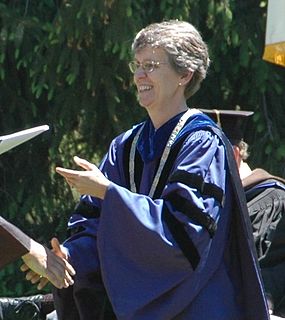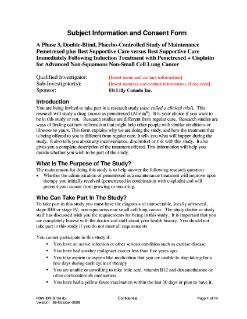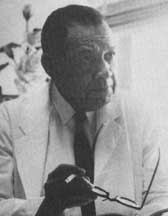Related Research Articles

Doctor is an academic title that originates from the Latin word of the same spelling and meaning. The word is originally an agentive noun of the Latin verb docēre[dɔˈkeːrɛ] 'to teach'. It has been used as an academic title in Europe since the 13th century, when the first doctorates were awarded at the University of Bologna and the University of Paris.
The Nuremberg Code is a set of ethical research principles for human experimentation created by the court in U.S. v Brandt, one of the Subsequent Nuremberg trials that were held after the Second World War.

The Hippocratic Oath is an oath of ethics historically taken by physicians. It is one of the most widely known of Greek medical texts. In its original form, it requires a new physician to swear, by a number of healing gods, to uphold specific ethical standards. The oath is the earliest expression of medical ethics in the Western world, establishing several principles of medical ethics which remain of paramount significance today. These include the principles of medical confidentiality and non-maleficence. As the seminal articulation of certain principles that continue to guide and inform medical practice, the ancient text is of more than historic and symbolic value. It is enshrined in the legal statutes of various jurisdictions, such that violations of the oath may carry criminal or other liability beyond the oath's symbolic nature.

Informed consent is a principle in medical ethics and medical law that a patient should have sufficient information before making their own free decisions about their medical care. A healthcare provider is often held to have a responsibility to ensure that the consent that a patient gives is informed, and informed consent can apply to a health care intervention on a person, conducting some form of research on a person, or for disclosing a person's information. Informed consent is, in fact, a fundamental principle in the field of health protection, obviously wanting to mark the very close and unavoidable connection between the need for consent and the inviolability of the right to health. A health care provider may ask a patient to consent to receive therapy before providing it, a clinical researcher may ask a research participant before enrolling that person into a clinical trial, and a researcher may ask a research participant before starting some form of controlled experiment. Informed consent is collected according to guidelines from the fields of medical ethics and research ethics.
Ethical codes are adopted by organizations to assist members in understanding the difference between right and wrong and in applying that understanding to their decisions. An ethical code generally implies documents at three levels: codes of business ethics, codes of conduct for employees, and codes of professional practice.
Bioethics is the study of the ethical issues emerging from advances in biology, medicine and technologies. It proposes the discussion about moral discernment in society and it is often related to medical policy and practice, but also to broader questions as environment and well-being. Bioethics is concerned with the ethical questions that arise in the relationships among life sciences, biotechnology, medicine, politics, law, theology and philosophy. It includes the study of values relating to primary care, other branches of medicine, ethical education in science, animal, and environmental ethics.
Medical ethics is an applied branch of ethics which analyzes the practice of clinical medicine and related scientific research. Medical ethics is based on a set of values that professionals can refer to in the case of any confusion or conflict. These values include the respect for autonomy, non-maleficence, beneficence, and justice. Such tenets may allow doctors, care providers, and families to create a treatment plan and work towards the same common goal. It is important to note that these four values are not ranked in order of importance or relevance and that they all encompass values pertaining to medical ethics. However, a conflict may arise leading to the need for hierarchy in an ethical system, such that some moral elements overrule others with the purpose of applying the best moral judgement to a difficult medical situation. Medical ethics is particularly relevant in decisions regarding involuntary treatment and involuntary commitment.
A patient is any recipient of health care services that are performed by healthcare professionals. The patient is most often ill or injured and in need of treatment by a physician, nurse, optometrist, dentist, veterinarian, or other health care provider.

The Royal College of Physicians and Surgeons of Canada is a regulatory college which acts as a national, nonprofit organization established in 1929 by a special Act of Parliament to oversee the medical education of specialists in Canada.
A medical error is a preventable adverse effect of care ("iatrogenesis"), whether or not it is evident or harmful to the patient. This might include an inaccurate or incomplete diagnosis or treatment of a disease, injury, syndrome, behavior, infection, or other ailment.
The Declaration of Helsinki is a set of ethical principles regarding human experimentation developed originally in 1964 for the medical community by the World Medical Association (WMA). It is widely regarded as the cornerstone document on human research ethics.
A medical specialty is a branch of medical practice that is focused on a defined group of patients, diseases, skills, or philosophy. Examples include children (paediatrics), cancer (oncology), laboratory medicine (pathology), or primary care. After completing medical school, physicians or surgeons usually further their medical education in a specific specialty of medicine by completing a multiple-year residency to become a specialist.
Patient safety is a discipline that emphasizes safety in health care through the prevention, reduction, reporting and analysis of error and other types of unnecessary harm that often lead to adverse patient events. The frequency and magnitude of avoidable adverse events, often known as patient safety incidents, experienced by patients was not well known until the 1990s, when multiple countries reported significant numbers of patients harmed and killed by medical errors. Recognizing that healthcare errors impact 1 in every 10 patients around the world, the World Health Organization (WHO) calls patient safety an endemic concern. Indeed, patient safety has emerged as a distinct healthcare discipline supported by an immature yet developing scientific framework. There is a significant transdisciplinary body of theoretical and research literature that informs the science of patient safety.
Professional courtesy generally refers to the etiquette extended between members of the same profession. The concept of professional courtesy is believed to have originated within the ancient practice of medicine whereby physicians provided services to other physicians without charge. However, the philosophy does not necessarily involve the same courtesy across all professions, nor is professional courtesy a mandated privilege, but is freely given at the discretion of the party extending the courtesy.

Thomas Percival was an English physician, health reformer, ethicist and author who wrote an early code of medical ethics. He drew up a pamphlet with the code in 1794 and wrote an expanded version in 1803, Medical Ethics; or, a Code of Institutes and Precepts, Adapted to the Professional Conduct of Physicians and Surgeons in which he coined the expression "medical ethics". He was a founding subscriber of the Portico Library in Manchester and a pioneering campaigner for public health measures and factory regulation in the city.
Clinical peer review, also known as medical peer review is the process by which health care professionals, including those in nursing and pharmacy, evaluate each other's clinical performance. A discipline-specific process may be referenced accordingly.
David Jay Rothman was professor of Social Medicine at Columbia University College of Physicians and Surgeons. He also served as the president of the Institute on Medicine as a Profession (IMAP). Rothman's work focused on the social history of American medicine and current health care practices. His research also explored human rights in medicine, including organ trafficking, AIDS, and the ethics of research in developing countries.

Eugene Heriot Dibble Jr. (1893–1968) was an American physician and head of the John A. Andrew Memorial Hospital at the Tuskegee Institute in Alabama. He played an important role in the Tuskegee Syphilis Study, which was a clinical study conducted on syphilis in African American males from 1932 to 1972.

The UK Health Alliance on Climate Change (UKHACC), also referred to as the Alliance, is an organisation in the United Kingdom of several major health institutions that give it a collective membership of over 650,000 people including doctors, nurses and other healthcare professionals, with the aim to better public health by combatting climate change. It was founded in 2016 and its founding members include the British Medical Journal (BMJ), the British Medical Association (BMA), The Lancet, the Royal Society of Medicine (RSM) and the Royal College of Physicians (RCP).
Kenneth William Donald (1911–1994) was a British physician, surgeon, pulmonologist, cardiologist, professor of medicine, and leading expert on underwater physiology and exercise physiology.
References
- ↑ "Medical Ethics; or a Code of Institutes and Precepts adapted to the Professional Conduct of Physicians and Surgeons". Provincial Medical and Surgical Journal. 13 (26): 711–712. 1849-12-26. PMC 2488117 .
- ↑ Sokol, Daniel K. (2009-05-14). "Medical Ethics or, a Code of Institutes and Precepts Adapted to the Professional Conduct of Physicians and Surgeons". The BMJ. 338 (26): 711–712. doi:10.1136/bmj.b1936. PMC 2488117 .
- ↑ Waddington, Ivan (1975). "The Development of Medical Ethics – A Sociological Analysis". Medical History. 19 (1): 36–51. doi:10.1017/s002572730001992x. PMC 1081608 . PMID 1095851.